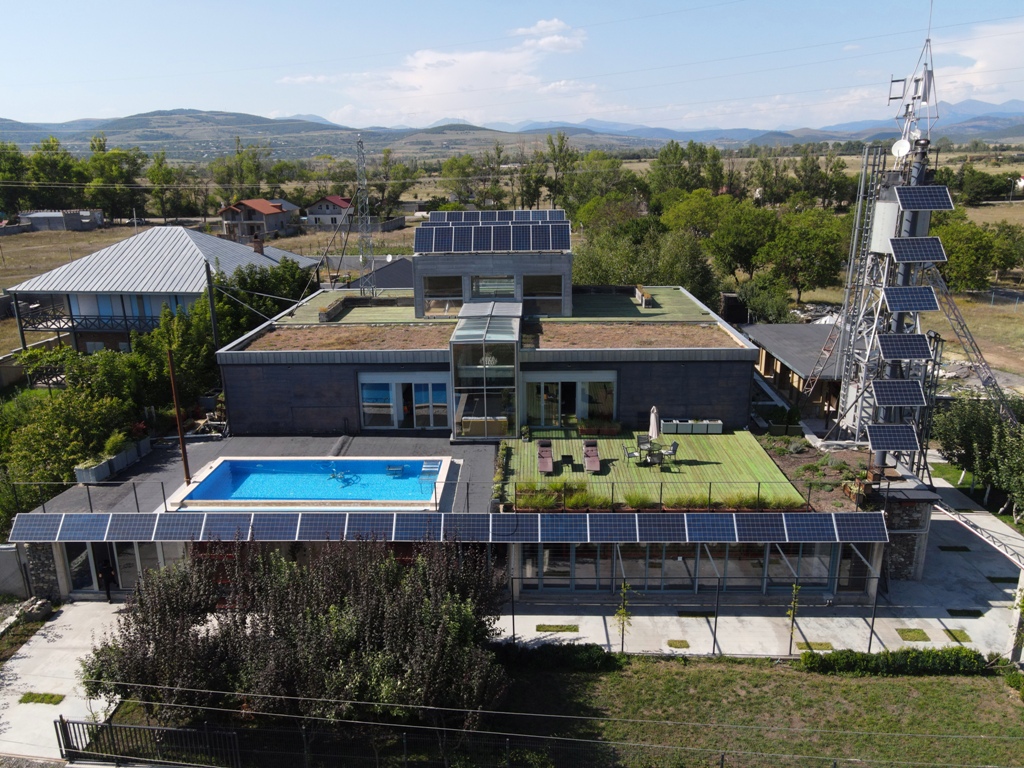Energy-efficient production and relation to competitiveness
In the modern competitive market, proper resource management plays a crucial role. The basis for the modern green wine industry is cost-effective management of processes, use of renewable energy resources, and waste minimization. This covers all segments of production from the irrigation system to premises lighting: the company’s vehicle fleet, field machinery, and product packaging – where the energy is used for production, storage or transportation.
After identifying the needed data, optimising energy use will improve production processes. Information analysis, followed by conclusions and recommendations, increases energy performance, develops the enterprise through adopting ISO 5001 green management principles, and uses renewable energy instead of the traditional one.
These are the means that use wind, solar and geothermal energy installation and cut down by 30% of grid electricity demand.
Using renewables as the primary energy source, increasing energy performance by various methods, and having proper energy management, achieving a 50% reduction in buying grid electricity is realistic.
Energy audit as a tool for resources efficient management
The purpose of an energy audit in the wine industry is to obtain detailed information about production processes and used equipment, identification of cost-optimal potential for energy savings, and calculation and analysis of results. This tool can be applied at each stage, identifying the problems and finding solutions.
An industrial energy audit can form a view of the challenges in wine production energy management:
- How and in which area can energy performance be improved, reducing cost in wine value change?
- Which alternative solutions suit my business? For my region?
- Which approaches are sustainable, and to which extent?
- How can different types of energy be co-utilized or interconnected?
- What is the time scale for implementing alternative options, savings, and payback?
- How to store the excess energy produced during the not-loaded shift on the site and use it when needed?
- Is implementing planned changes alone financially feasible, or will joint effort with other actors be better?
- Network or separated systems?
Good practice example
Cold preliminary fermentation maceration during wine ethanol fermentation is already widely used in wine factories in Georgia and worldwide. For the fermentation process, there is developed energy-saving and processes optimization methodology. Particularly in wine production, different energy-saving approaches are analysed, followed by an action plan and verification of results.
New legislation on energy performance, responsibilities of enterprises and new
challenges
Georgian legislation, particularly Law on Energy Efficiency” -21/05/2020 aims at energy saving, an increase of energy supply and security, and eliminating energy efficiency barriers on the energy market. The law (article 5 – Energy Efficiency Policy in Industry) obliges the first category enterprises, including wine producers, to conduct a full energy audit once in 4 years, or adopt permanent energy management as follows:
a) If the production facility consists of energy final use large segments/elements, – then individual energy audits series for each segment/element.
b) If the enterprise has two or more small-scale sites, and conducts the same or similar activities, then audit two or more sites selectively.
c) In case of fulfilment, both conditions stated in “a” and “b” – in the same way as considered by both articles “a” and “b.”
Ministry of Economy and Sustainable Development of Georgia developed targeted programs for medium and small-size wine companies (which do not fall into the first category companies) and provided information on adopting the energy management system and certified experts.
The legal entity of the public Law, “Georgian Accreditation Center – the Unified National Body of Accreditation“, is responsible for the accreditation of energy auditors. Based on an agreement with relevant bodies of EU member states, this body can also validate energy auditors’ certificates.
Legal responsibility for energy management and fines in case of failure
The law sets responsibilities and fines in case of law requirements fulfilment failure.
The failure to implement an energy audit by an enterprise, the failure to implement the introduction of a certified energy management system ….. and/or the non-submission of a copy of an implemented energy audit report to the Ministry, or the failure to notify the introduction of a certified
energy management system or an environmental management system, shall result in a warning, and the failure to rectify the violation within 90 days after the warning shall result in a fine of 50,000 GEL to 100,000 GEL.
Conclusion
An energy audit is a powerful tool that provides cost-effective wine industry management. It is the milestone in the Georgian green wine sector development roadmap supported by Georgian legislation.











